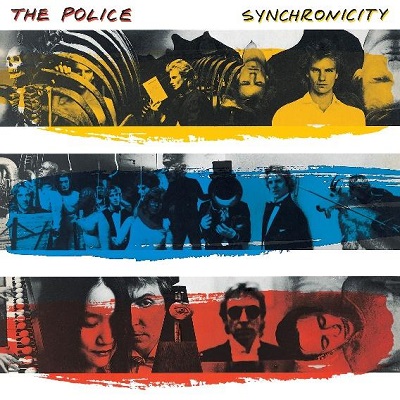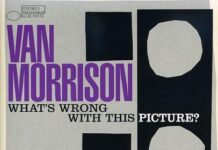Although they sprung from the seeds of the punk movement of the late 70s, The Police managed to rise above the usual snarl and spit mentality, and instead became a viable, smart and extremely successful rock group. Synchronicity, their fifth and final album, was a brilliant mixture of reggae, tribal, progressive, pop, jazz and the purely outlandish that somehow transcended the band into the netherworlds of popularity. The album’s first single, “Every Breath You Take,” remains one of the most eloquent and concise songs ever put on tape. By the end of 1983, The Police were the biggest band in the world.
With his sharp songwriting skills at their height, Sting espoused the Jungian theory of synchronicity on the title track and its sequel (titled I and II). It all somehow tied into Sting’s own personal problems at the time including the break-up of his marriage and the fact that the Police were standing on their last legs. The other two singles, “King Of Pain” and “Wrapped Around Your Finger,” clearly confirm that the bassist/vocalist was confronting his own demons. Guitarist Andy Summers and drummer Stewart Copeland each contribute tracks of their own. Summer’s “Mother” ranks as one of the most obscene recordings ever made; Copeland’s “Miss Grandenko” is a reggae-fueled, above average throwaway. Regardless, as an instrumental unit, The Police were capable of laying on very thick and surreal textures over very funky and quick-change rhythms. Listen to “Tea In The Sahara,” inspired by the Paul Bowles novel, The Sheltering Sky, and you’ll understand what I’m saying. This is where Summers and Copeland were invaluable to Sting.
The last song on the album pretty much sums up the entire affair. “Murder By Numbers” — which was initially available only on the fairly new CD format, not the still-popular cassette format — is a ghoulish and comical take on the “art” of murder. What a way to make an exit! The Police never made another studio album after Synchronicity. Sting continues to record and tour regularly, but has lost a lot of steam with age. Copeland resurfaces from time to time with soundtracks and one-shot experimental bands. Summers makes instrumental records and collaborates with other high profile “artists” like Robert Fripp. The Police have regrouped a handful of times since 1984, and finally toured in 2007. The synchronicity between Sting, Copeland and Summers is something that still resonates with audiences around the world.
~ Shawn Perry




















